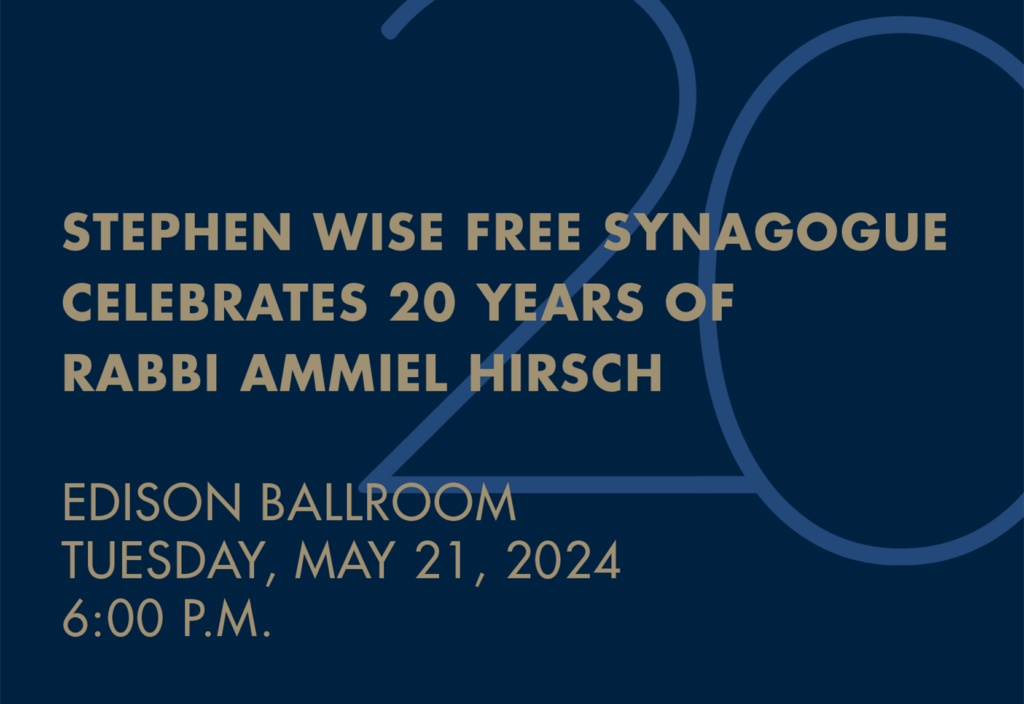Our philosophy is based on the world-renowned schools of Reggio Emilia, Italy, which value children as capable, strong, and rich with wonder and knowledge.
We believe in a constructivist, play-based approach to education. Through play, our children are empowered to explore their surroundings, form relationships with teachers and peers, and work with a wide variety of materials to create, experiment, and discover. Our children learn in meaningful contexts, using everyday moments as opportunities for growth and learning.
Engineering Creative Spaces
Young children can create, solve problems, experiment, test, adapt, collaborate, explain—in short, they can participate in the design process as young engineers.”
— Beth Van Meeteren, Ed.D. and Betty Zan, Ph.D.
When our four and five-year-olds showed an interest in building blocks, we transformed the classroom next door into a building space where they could let their creativity run free. As soon as the friends saw the space, they immediately began thinking about what they wanted to build next.
We should definitely build the school.”
We need four floors. The lobby, office, our floor, and the roof”
The terrace doesn’t count because it is the same floor as this one.”
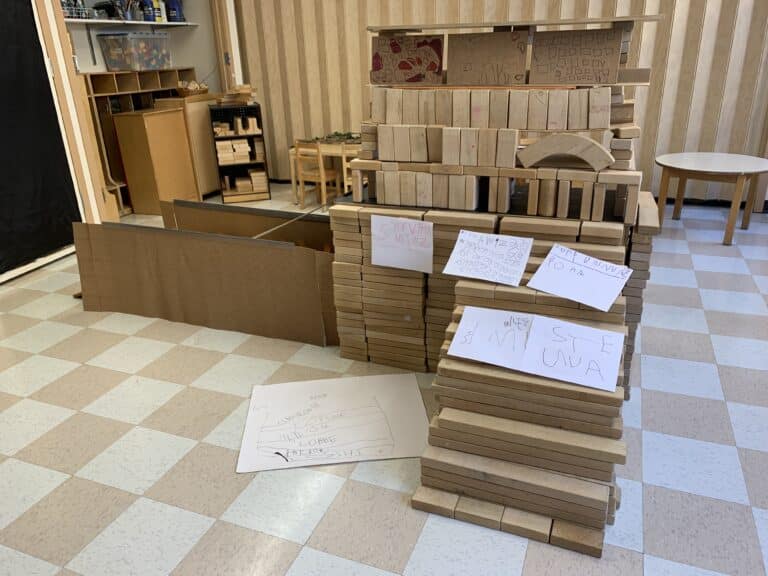
So we began our research and took a trip downstairs stopping at every floor, and outside to see what the building looks like.
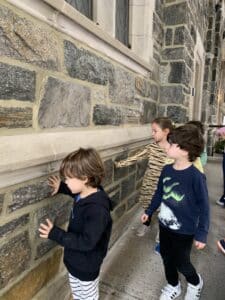
We are finding out what all the rooms like look.”
I think it will takes us 100 days to build.”
We should take a picture of school from the outside so we know what it looks like.”
When we got back upstairs, the friends worked together to make an architectural sketch and name all the floors in our school.
“We have to draw a picture of it and then we can look at it to build.”
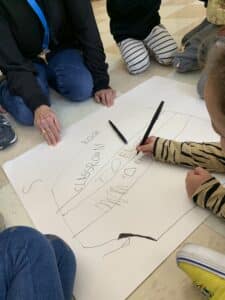
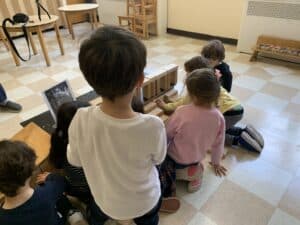
Using their sketch and photos as guides, they started to build from the ground up. But once they’d added the front doors, they discovered a problem:
There are two floors down and this can’t go any lower.”
We have to lift it.”
They got back to work adding more blocks:
If we run out of blocks we can get some from the other classes.”
From the STEM room!"
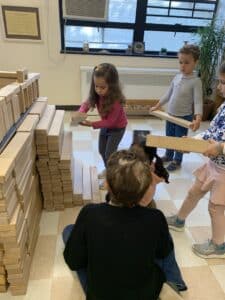
And when the friends had exhausted the school’s entire supply of blocks, they began using other materials.
The students’ desire to build “our school” shows us how our relationship to the spaces in our school are truly significant — and reciprocal.
Creating intentional spaces influences us and the children’s work. At the same time, through each new experience, we leave our mark on our environment as we inhabit these spaces.
As the children explored the spaces in our school, they observed all the details and discovered parts they’d never seen before. They thought not only about the physical spaces, but also about the people who inhabit them.
To our students, the school is more than just the space where they learn; it’s the whole synagogue building, and the entire community.
Stephen Wise Free Synagogue is a 501(c)(3) religious organization (Tax ID #13-1628215) and any donations are tax deductible to the full extent allowable by law.


